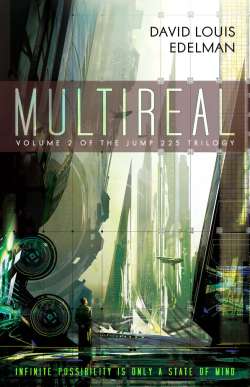If you’re at all interested in the copy editing process that a novel goes through before it sees print, you might find this interesting. Here’s a conversation I just had this morning with my copy editor, Deanna Hoak, about a sentence in my upcoming book MultiReal. I’ve done a very minimal amount of editing to remove the “brb”s and such, but otherwise this is exactly how the conversation occurred.
 The chapter in question is a flashback featuring a conversation between Marcus Surina and his daughter Margaret. In the original passage, Marcus says: “There’s a look people get when the Null Current is about to pull them under, Margaret. A look of inevitability. It’s the look of the stalk of wheat, watching the thresher approach and knowing that the time’s come for a newer, stronger crop to bask in the sun.”
The chapter in question is a flashback featuring a conversation between Marcus Surina and his daughter Margaret. In the original passage, Marcus says: “There’s a look people get when the Null Current is about to pull them under, Margaret. A look of inevitability. It’s the look of the stalk of wheat, watching the thresher approach and knowing that the time’s come for a newer, stronger crop to bask in the sun.”
Now Marcus Surina’s supposed to be a little — well, odd. But Deanna’s concern was that having him ascribe emotion to a stalk of wheat might be a little too odd. So we hashed it out this morning over IM as follows:
Deanna: With the wheat thing, maybe about a mouse that can’t get away fast enough?
Deanna: I’ll look at it more closely on second read, or you can let me know if you think of something.
DLE: Let me look at that sentence
Deanna: I just know it hit me as off when I read it the first time.
DLE: Hmm
DLE: You’re right… it does seem weird for a stalk of wheat to have a “look”
Deanna: Yeah, I was afraid the reader would perceive him as loonier than you intended.
DLE: He *is* supposed to be odd, and use really weird metaphors
DLE: But… you’re right. That might be pushing it.
DLE: What if I said something like “It’s the look that the stalk of wheat must get when it watches the thresher approach…”
DLE: Does the “must get” distance it at all?
Deanna: Hm. I think “look” is really the problem.
Deanna: “Look” with “wheat”
Deanna: From my way of thinking…
Deanna: It’s early in the book. The reader isn’t going to know yet if it’s just him who talks that way, or if you just write that way. I would fear someone picking it up in the bookstore and thumbing through the first few pages might think you continually use those.
 I think I’ve discovered now why authors do that.
I think I’ve discovered now why authors do that.